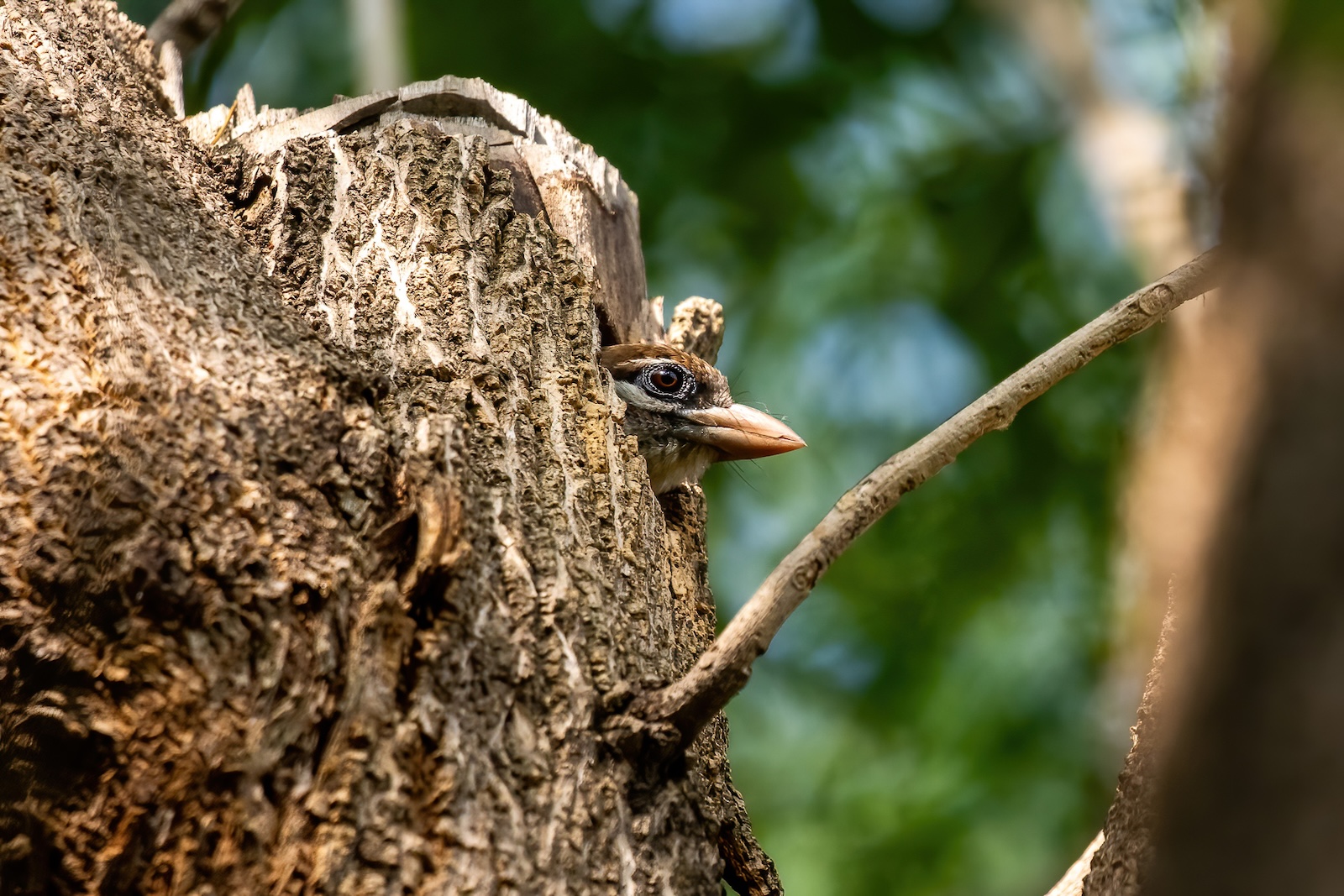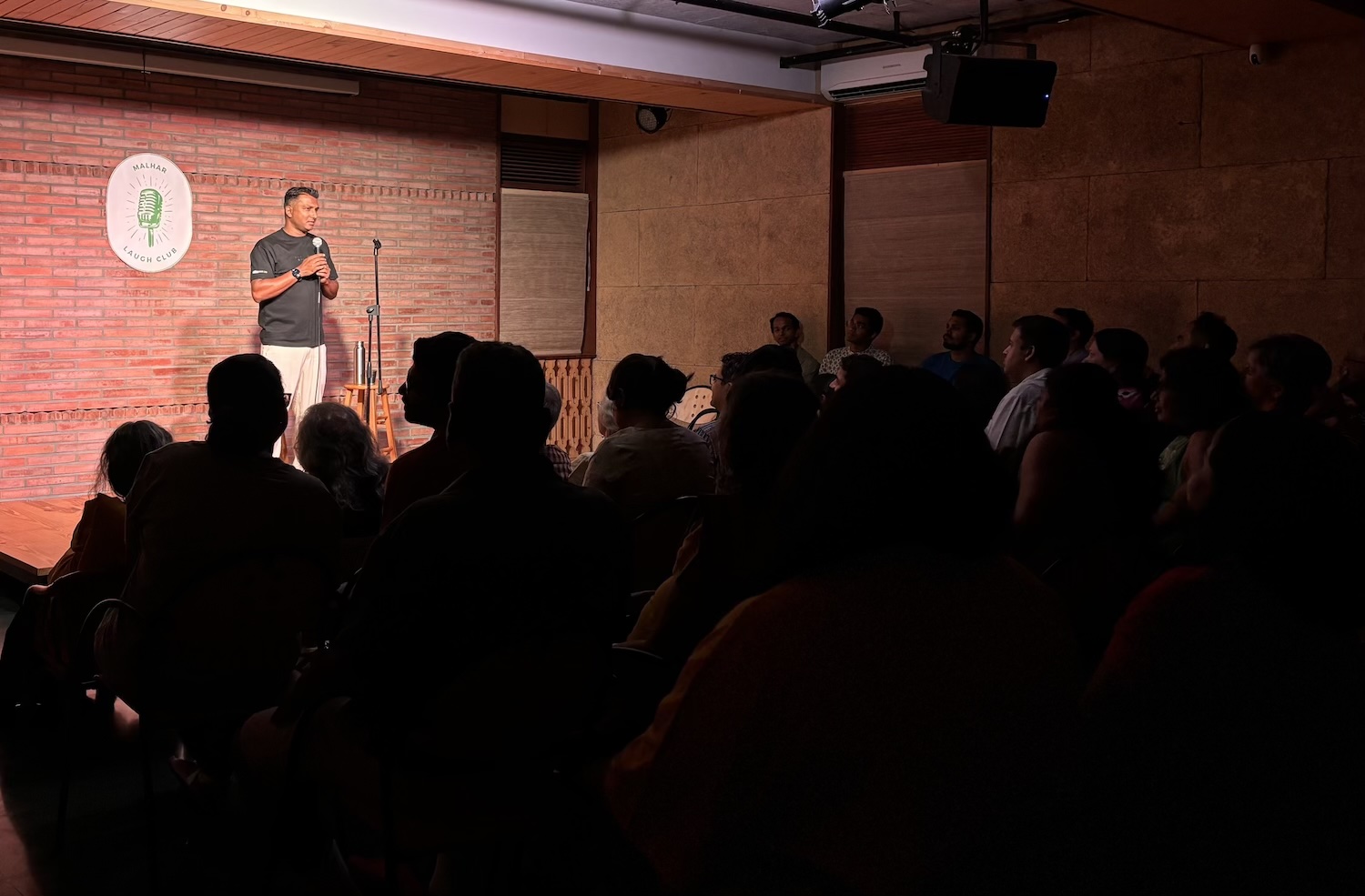There was a time when waking up to the sound of birds wasn’t a privilege. It was just… life.
Now, in Bangalore, if you hear a bird call in the morning, it’s likely competing with a jackhammer, a concrete mixer, or a contractor yelling “JCB yellappa?”. The birds, understandably, have started leaving passive-aggressive Google reviews:
“Used to be a lovely place. Too much construction. Would not recommend for nesting.”
This city isn’t growing. It’s imploding. Digging its way to find another civilisation altogether. I have full confidence that BBMP might achieve this someday. Somewhere in this relentless orchestra of honking and crappy reverse-gear music, we’ve forgotten what sound is supposed to feel like.
A Forgotten Symphony
Sound was once a message. A purpose.
The alarm call of a Magpie Robin.
The courtship whistle of a Tickle’s Blue Flycatcher.
The rhythmic call of a White-cheeked barbet, timing the stillness of the afternoon.
Now? Sound is mostly a symptom. Of impatience. Of productivity. Of “Will this Metro station be ready by next July?”
We’ve surrounded ourselves with urgency so thick that silence feels suspicious. If it’s quiet, something must be wrong — like the power’s gone, or worse, the Wi-Fi’s down.
But in the quiet, if you listen — really listen — you’ll hear something older than language:
The flap of a Hornbill darting across a tree.
The breeze negotiating with a bamboo grove.
The sunbirds squeaking like faulty rubber toys, guarding their nectar like misers at a treasure vault.
It’s not just background noise. It’s a story — one we’re tuning out in favor of a daily playlist called “Urban Chaos: Vol. 9621.”
The Myth of Progress (and Other Noisy Lies)
Somewhere along the way, we started believing that noise meant growth. That the rumble of engines and the scream of drills were proof that we progressing.
What if we’re just building louder ruins?
We spend our lives chasing the “city dream”: better roads (that are always dug up), shinier towers (that block the sunlight), and high-speed internet (to doomscroll in 300 Mbps). But the moment we catch a breath, we open Instagram and see a barefoot influencer sipping tea in a forest hut, captioned “slow mornings, grateful heart.” And suddenly, all our urban ambition feels like a bad trade.
We’re building cities so fast, only to dream of escaping them.
We fantasise about “waking up to birdsong” while approving yet another tower with infinite floors (and paying a premium for the higher ones) and zero balconies.
We want fast deliveries, but we also want forest retreats.
We want Alexa to play white noise of a jungle… but not an actual jungle.
The influencers, meanwhile, are milking our collective FOMO with reels that go something like:
“I left the city. Now I listen to the wind.”
And the comments?
“Ugh I need this vibe rn.”
“Manifesting this life.”
“Why am I still in this urban jungle?”
The paradox is complete. We’ve built a life we’re desperate to escape from, one building, one road, one chaos at a time.

So, What Now?
Over seven years ago, I decided to move away from the chaos, out of the belly of the city and into what was then considered the “outskirts.” It was quieter, greener, and the mornings were punctuated by actual bird calls, not the thudding bass of a neighbour’s throat-clearing routine.
Back then, it felt like a retreat. Now, over 600 families have joined this so-called escape. And while the birds still chirp, the question echoing in my head is: how far do we have to keep running to find silence that stays silent?
Here’s a gentle nudge — not to pack your bags and head for the hills (though tempting), but to listen differently. Maybe leave a window open in the morning, before the world fully wakes up. Maybe walk to that tree that the builders somehow missed. Maybe, just pause.
Let’s not wait for silence to become a luxury. Let’s tune in before it’s tuned out.
Because while the world keeps making noise, the birds haven’t stopped singing — we’ve just stopped listening.




